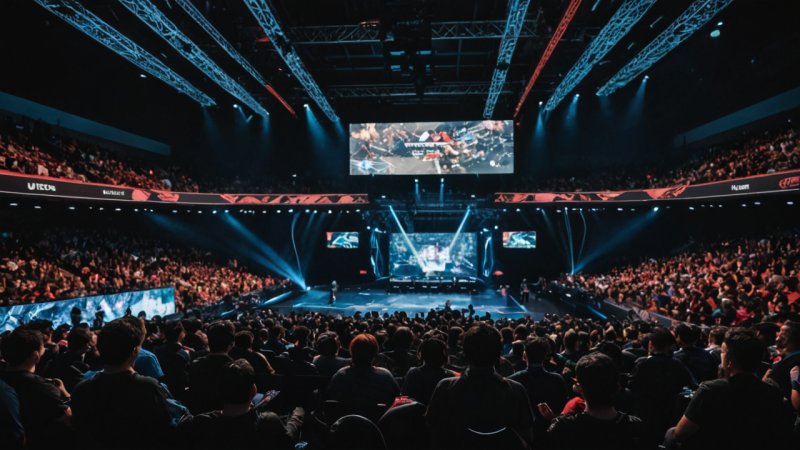The world of entertainment has experienced a seismic shift in recent years, largely due to the rise of eSports. Once regarded as a niche interest, competitive gaming has burgeoned into a global phenomenon, reshaping how we perceive entertainment technology. This article delves into the rapid ascent of eSports and its profound implications for the entertainment tech landscape.
eSports, which encompasses organized multiplayer video game competitions, has gained immense popularity across various demographics. Major tournaments fill stadiums, drawing audiences comparable to traditional sports events. This popularity has prompted significant investments in technology, with companies seeking innovative ways to enhance the viewing experience. Streaming platforms like Twitch and YouTube have become pivotal in broadcasting these events, allowing fans to engage with their favorite players in real-time.
One of the most notable impacts of eSports on entertainment tech is the evolution of live streaming technology. High-definition streaming, low latency, and interactivity have become essential to keeping viewers engaged. The demand for high-quality broadcasts has led to advancements in internet bandwidth and streaming platforms. These technological improvements have not only benefited eSports but have also enhanced the overall online entertainment experience.
Furthermore, eSports has driven the development of specialized hardware and software. Companies are now producing gaming gear, including high-refresh-rate monitors, responsive mice, and ergonomic keyboards, designed specifically for competitive play. This surge in demand for gaming equipment has also influenced the production of consumer electronics, pushing brands to innovate and create products that cater to the discerning gamer.
The rise of eSports has also ushered in a new era of community interaction. Gamers and fans can connect through social media, forums, and live chats, fostering a sense of belonging. This engagement has prompted tech companies to create tools that support community building, such as collaborative streaming features and interactive platforms that allow fans to participate in events. As a result, technology is no longer just a passive medium; it has become an essential tool for social interaction.
Moreover, eSports has expanded the concept of entertainment beyond traditional boundaries. Viewers are not just spectating; they are participating in a shared experience. This shift has implications for content creation and distribution. Brands are increasingly collaborating with eSports organizations to reach audiences in new ways, blurring the lines between gaming and traditional media. The integration of advertising within streams and events has created a new revenue model that benefits both content creators and brands.
In conclusion, the rise of eSports is not merely a trend; it is a transformative movement that is redefining entertainment technology. From advancements in streaming capabilities to specialized gaming hardware, eSports is driving innovation across the board. As more people embrace this new form of entertainment, we can expect further evolution in the tech that supports it, ultimately enriching our digital experiences.






